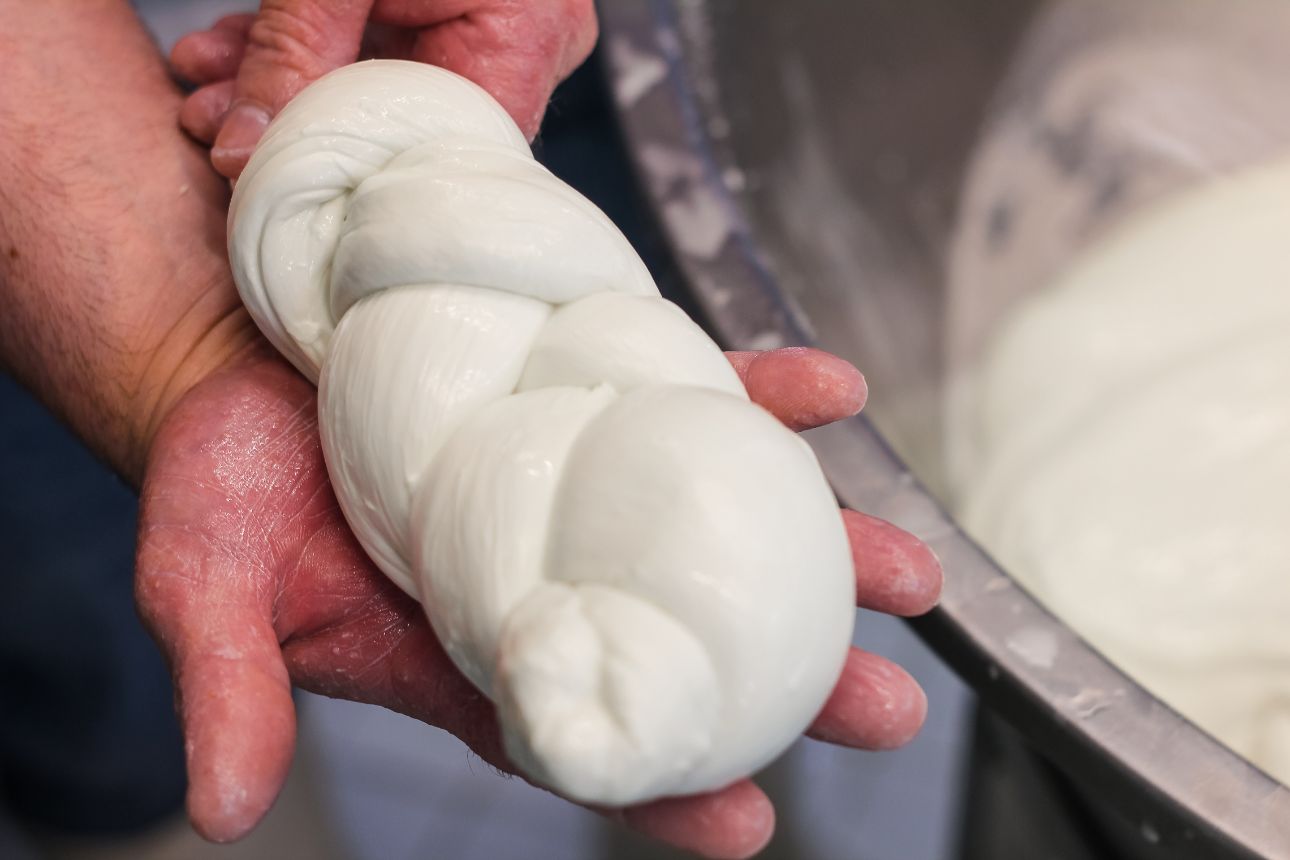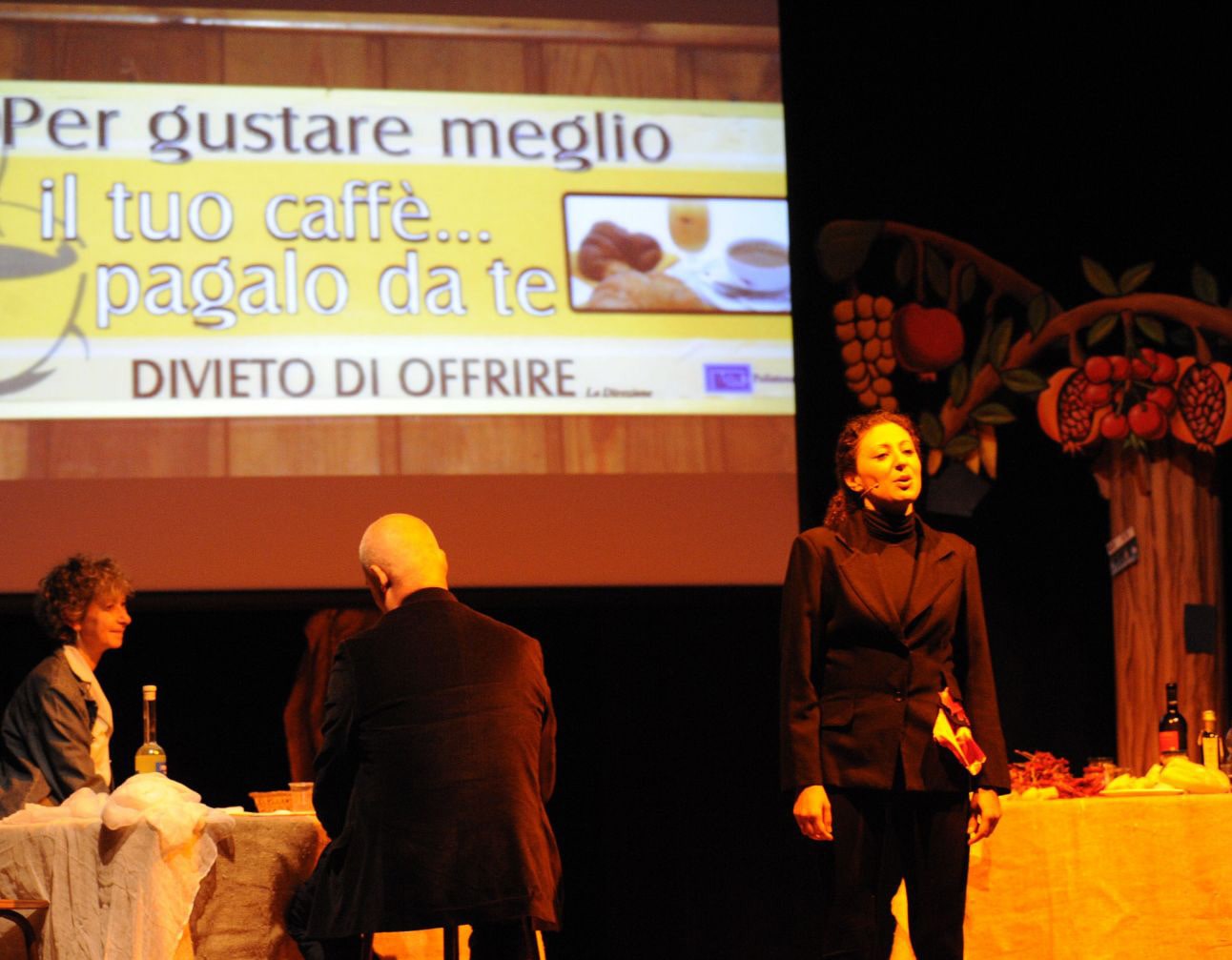Baking their way to a new life. Interview with Chef Brozzetti: from a three-starred restaurant to a confectionery workshop in Padua prison.
The idea behind Mafie in pentola (literally “Boiling The Mafia”) came from my desire to work on a project that combined my two real passions: helping people (a lifelong goal) and researching food, as a way of fostering a culture of legality while also telling stories of real-life work. A stage play that is also an unusual synergy between two worlds - memory and food - that at first glance seem totally unrelated. My scriptwriter, Andrea Guolo, has interpreted this desire perfectly.
I saw this synergy as an opportunity to tell people about the origins of Libera Terra, produce grown on the land confiscated from the Mafia.
Despite being very familiar with these products: taralli (ring-shaped crackers), pasta and wine, which are all unique in terms of their flavour and what they represent, before I started my journey among the workers at the cooperatives, I could never have imagined what I would learn from them.
I really did learn a lot. Because Mafie in pentola is more than a historical narrative presented on-stage. It's the result of a journey that started in Sicily and went north, through the lands that were confiscated from the Mafia and the organised criminal gangs and handed to agricultural cooperatives, thanks to Law No. 109 of 1996 approved by the Italian Parliament after Libera - Associations, names and numbers against the Mafia had collected over a million signatures in support of the new legislation.
So I thought: why not tell people what's behind these products? Why not unearth the stories of hard work, hope, redemption and the regeneration of these lands, using theatre as a way of showing people that a different world is possible - even in places like Corleone, Casal di Principe or Isola di Capo Rizzuto?
The only way to know the truth is to go and find it, looking straight in the eyes of the people who are telling you. To tell these stories, I had to visit the farming cooperatives. So that’s what I did, to create a brand-new type of show. Over the years, it has engaged audiences by using humour, and by appealing to their appetites with descriptions of the quality of Libera Terra produce, instead of putting them off their food.
Mafie in pentola is the transposition into prose of an investigative journalism project made up of hour after hour of recordings, videos and conversations; thousands of hours spent in low-cost flights and hire cars. The stage play is based directly on these conversations. I can assure you, it was no easy task to sum up weeks of experience in a thirty-page script, which I take 70 minutes to perform. But the significance of all this came almost instantly.
I’m talking about the strong sense of payback from this challenge, launched by the people of Libera in the former Mafia lands - although at the start it wasn’t like that. Angelo Sciortino, who works in the vineyards of Catarratto, is one of the first members of the cooperative. He tells us:
“Initially, nobody wanted to work those lands. Our choice to work there was a revolutionary one, because nobody was paying the social insurance for the workers. We at ‘Placido Rizzotto’ were the first. In the beginning, people would refuse to work for us out of fear of being seen to take sides. Now, people are asking for jobs every day.”
Stories of redemption and rebirth, like those told in a region very close to my heart: Calabria.
Even today, Valle del Marro, home to the cooperatives that farm the lands confiscated from the Mammoliti clan, is still the most exposed to attacks by the Mafia, who burn the crops and destroy the large groves of olive trees, cut down to harvest precious timber. Certain acts are committed to eradicate not only the fruits of the earth, but also the people’s will to work. But the cowardice of the ‘ndrangheta now has to reckon with a far more powerful force: Nature itself. This is how I begin the show, in the part that talks about aperitifs: “But the olive is a stubborn tree. It chases life, like people do. Animated by the force of the earth, it regrows and reflowers.”

Then there’s the part about buffalo mozzarella and rebirth. It’s made in the ideal location: Castel Volturno, the Terre di Don Giuseppe Diana cooperative. This is home to one of Libera’s biggest cooperatives: 82 hectares and a dairy - the first to use only organically-farmed full-fat buffalo milk. Milk is brought to the new dairy from the local livestock farms; ruined by organised crime, the farmers chose the organic farming route as a powerful message and antidote to the rivers of poison poured onto the land by the Camorra. Mozzarella is now the principal witness to the regeneration of these lands.
The journey ends just outside Turin. Northern Italy is also the setting for the final act of Mafie in pentola, which ends with dessert and a tale of the Mafia set in Lombardy, Piedmont, Emilia-Romagna and Veneto. In the early performances, the audiences found it disconcerting to hear stories of organised crime and seized lands in these regions.

Since its debut in 2010, Mafie in pentola has been very popular with the public; this grass-roots performance has no organised schedule but has now racked up 350 shows across the Italian peninsula. Why?
Because it’s a socially-useful show that informs the audience, penetrating the public consciousness and telling them that fighting the Mafia isn’t an impossible utopia but a real possibility. That everyone can fight the Mafia just by making a conscious decision about what food to buy.
The idea of building the script around a “legality menu”, from appetisers through to dessert (not forgetting the after-dinner coffee, which is of course the coup de théâtre), has certainly helped to whet the audience’s appetite.
This incredible journey of Mafie in pentola was not only physical but emotional. After thousands of kilometres in a Ford Transit with two theatre technicians in tow, travelling the length and breadth of Italy from Sicily to Trentino-Alto-Adige, not only has it changed the way I perform and relate to the public, it’s also given me a more authentic way of telling those stories every evening.
During all these years on tour, Mafie in pentola has been staged in so many different venues. I’ve met the children, sisters and mothers damaged by the Mafia; people who have lost their family members in this struggle, but who instead of giving up, transformed their pain into commitment.
These meetings along the journey were the most intense experience of Mafie in pentola. These people are what has transformed my approach to acting into something that for me is almost sacred. On stage, I don’t just play a role. I’m a witness to what I’ve seen, heard and experienced - a witness of my time. My approach to theatre has now become a work of public memory, a way of narrating rebirth and redemption but most importantly, hope. It's about sharing that hope with the public, from the worst - the Mafia itself - can spring the best: a land that blossoms again, giving us work and freedom.
Baking their way to a new life. Interview with Chef Brozzetti: from a three-starred restaurant to a confectionery workshop in Padua prison.
The “library of chocolate”: Lavoratti 1938. The historic brand is relaunched amid editorial projects, premium ingredients and high-profile collaborations.
